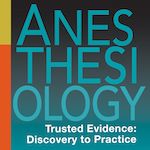 Anesthetists
Anesthetists
Propofol study shows how consciousness research could improve anesthesia safety

Editor's Note Propofol research published in the journal Neuron has broader implications for enabling more precise, safer doses of anesthesia, according to an August 14 report in Anesthesiology News. According to the article, anesthesiologists tend to use higher doses of anesthetics because they rely on indirect measures, such as heart…
Anesthesiologists sound alarm on wildfire smoke, surgical outcomes

Editor's Note The rising frequency of wildfires has anesthesiologists concerned about potential for adverse surgical outcomes to exposed patients, according to an article in the Online First edition of Anesthesiology, the peer-reviewed journal of the American Society of Anesthesiologists (ASA). As of an August 6 report from ASA, nearly 100…
1,000 California surgeries cancelled amid CRNA credentialing confusion

Editor's Note A CMS citation for immediate jeopardy this past June allegedly resulted in the cancellation of nearly 1,000 surgeries at Doctors Medical Center in Modesto, California, according to a July 30 article in Becker’s ASC Review. Citing a July 26 letter from California Assemblymen Heath Flora and Juan Alanis…
High-flow oxygen deemed safe for pediatric tubeless airway surgery

Editor's Note New findings show that compared to standard anesthetic methods, a new high-flow oxygen technique is just as safe as during tubeless upper airway surgery in children. Published in The Lancet Respiratory Medicine, the University of Queensland research-- the High-Flow Oxygen for Children's Airway Surgery (HAMSTER) trial—was the focus of…
Annual awards, new partnership advance paranesthesia nursing

Editor's Note Inspired by a leader in the postanesthesia care department (PACU)? Here’s a chance to provide well-deserved recognition from the entire perioperative community. If you’re a member of the American Board of Perianesthesia Nursing Certification, Inc. (ABPANC), we have something for you as well: exclusive discounts to attend OR…
Study finds no link between anesthesia dose, postop delirium

Editor's Note Higher doses of anesthesia did not affect risk of postoperative delirium in a study of more than 1,000 heart surgery patients, according to a June 10 United Press International (UPI) article on study findings published in JAMA. The research included 1,140 heart surgery patients, half of whom had…
Ketamine, other anesthetics show promise for depression, mental health treatment

Editor's Note The advance of ketamine and other anesthetics as depression treatments is spurring collaboration among anesthesiologists and psychiatrists for further advances in mental health treatment, according to an article in the June issue of Anesthesiology, the peer-reviewed journal of the American Society of Anesthesiologists. As the established experts in…
Carbon-conscious health systems phase out desflurane anesthesia gas to reduce emissions

Editor's Note Citing environmental concerns, multiple health systems have stopped using desflurane anesthesia gas, Becker’s Hospital Review reported on May 7. Citing the Philadelphia Inquirer, the outlet notes that Children's Hospital of Philadelphia and Marlton, N.J.-based Virtua Health are among those that have eliminated the gas so far, with the…
Study: Surgical team diversity improves patient outcomes

Editor's Note The more diverse the surgical team, the better the outcomes for patients and the lower the cost of care, according to a study of more than 700,000 operations at 88 hospitals in Ontario, Canada. Published May 15 in the British Journal of Surgery, findings show that surgeon-anesthetist teams…
Study: Standard preoperative fasting instructions sufficient for diabetic patients

Editor's Note Recent research suggests that minimizing the risk of perioperative pulmonary aspiration in diabetic patients does not require different fasting instructions. However, at least one expert has questioned the results, and widespread glucagon-like peptide-1 (GLP-1) receptor agonists for the treatment of both type 2 diabetes and weight loss can…

 Free Daily News
Free Daily News